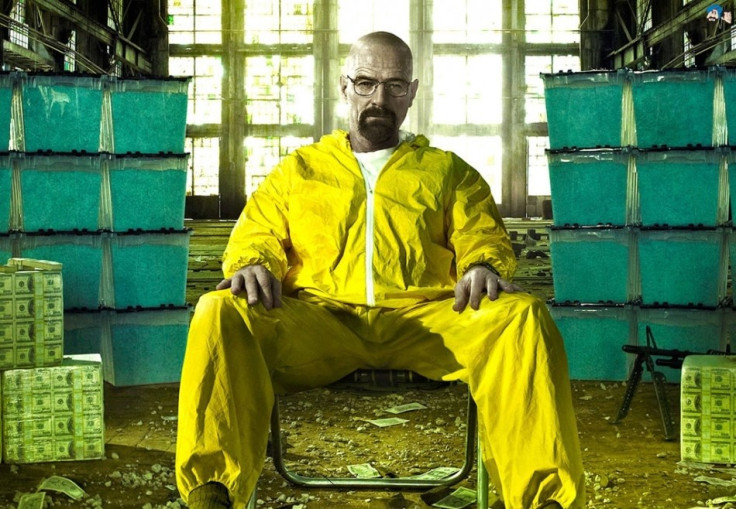South African Adventures: The Link Between Abba and Breaking Bad [BLOG]
Scourge of tik or crystal meth addiction among the young in poor areas is being fought by music, drama and education

One of the things that's really impressed me about a good number of the South Africans that I've come across is their resourcefulness.
Whether it's selling goods to people stuck in their cars at traffic lights, coming up with gap-in-the-market ideas for making a few extra rand as a supplement to low pay, or networking like fury in order to get last-minute donations to keep an event on track, people always seem to have ideas aplenty.
And just as well in the case of our 'Too Smart to Start' educational drama on substance misuse, which has finally hit the boards after delays caused by funding problems.
Various unexpected, last-minute demands by our hoped-for sponsors resulted in a busted flush, which led to Lisette and Muriel, two hard-working social workers from Abba, the NGO hosting the event, working their contacts in short order to provide everything from money to donated snacks for attendees.
Abba, which means "riding piggy-back" or "support" in Afrikaans, specialises in helping people involved in drug and alcohol abuse within various disadvantaged local communities in Stellenbosch.
As a result, the event was considered an important health education project to try to raise awareness of the key issues, which includes the vital role that family and friends have to play in helping their loved ones to stay clean post-rehab.
Although meant for everyone, one of the main target audiences was young people, increasing numbers of whom are now turning to "tik" or crystal meth rather than the more traditional alcohol favoured by their elders.
Awareness-raising
Tik is a cheap if dangerous-to-make - and take - amphetamine that gives people a euphoric rush, but which can lead to psychosis and brain damage among long-term users.
Breaking Bad, the excellent US TV serial about a chemistry teacher who turns to crystal meth production, give an accurate insight of where the drug can lead.
The awareness-raising event in Stellenbosch was Lisette and Muriel's brainchild and had the key aim of communicating with people on their own terms and in their own language rather than just bombarding them with the often-impenetrable jargon used by many in the caring professions.
Another thing seen as crucial was ensuring that the event was nice and lively, visual, engaging, and if possible even funny so that the core messages would stick in heads more easily without seeming preachy.
So with that in mind and after a few false starts we finally came across the wonderful Educational Theatre Company of the Africa Centre for HIV/Aids Management at Stellenbosch University.
The centre undertakes education and research and also operates a number of subsidised community service projects, which meant that we could avail ourselves of its services free.
And as it happened, they'd just written their own 30-minute production on the very subject of substance abuse, which, with a few minor changes, fitted in perfectly with our needs.
It was the second play in their mini-musical repertoire, being a sequel to Lucky the Hero & Lucky Fish, an educational drama on the issues surrounding HIV and Aids.
Touching a nerve
Although initially aimed at workers on wine farms in the greater Stellenbosch area, where awareness of such matters has historically been low due to poor literacy levels and geographic isolation, 'Lucky' has now been seen by 250,000 people across the country. There is a similar target for this one.
And it was fab. Although performed in vernacular Afrikaans for 17-year-old schoolchildren in the Idas Valley and to the wider community in Cloetesville's Eikestad Hall even I could see it was a hit.
Amazingly, even the teenagers seemed engaged, listening where they should and laughing in all of the right places - and even taking part in the discussion at the end.
The second showing, in Cloetesville, was packed to the rafters as well.
But the whole event definitely touched a nerve with some. One local resident, who does a lot of voluntary work in substance abuse, said that it brought back her own problematic youth and made her feel grateful that she had found the strength to overcome her own issues so that she could help others.
Her friend, meanwhile, whose daughter is expecting a baby but who has been drinking heavily during the pregnancy, said that she had resolved to sit down and talk to her. Her hope was that she could encourage the teenager to get in touch with Abba in order to get the help she needed.
And that's great because it would seem to me that if the events could help to change the life of just one person for the better, then all of the effort would totally have been worth it.
READ:
South African Adventures: Floral Tributes Herald Rebirth of Spring [BLOG]
South African Adventure: That's Entertainment Cape Town-Style [BLOG]
South African Adventure: Cheese, Wine and Classic Vinyl Create the Perfect Market Combo
South African Adventure: NHS Model to Fix Healthcare Shambles [BLOG]
South African Adventure: Winter Wonderland in Hermanus
South African Adventure: Johannesburg, City of Gold without the Lustre [BLOG]
My South African Adventure: The Legacy of the San Hunter-Gatherers [BLOG]
My South African Adventure: Lynedoch Eco-village Rolls Back Pain of Apartheid [BLOG]
My South African Adventure: How Living Abroad Brings out Green, Green Grass of Home [BLOG]
Cath Everett is a resting journalist who has written about business, technology and HR issues for over 20 years. She recently moved from the UK to South Africa with her husband
© Copyright IBTimes 2025. All rights reserved.




















